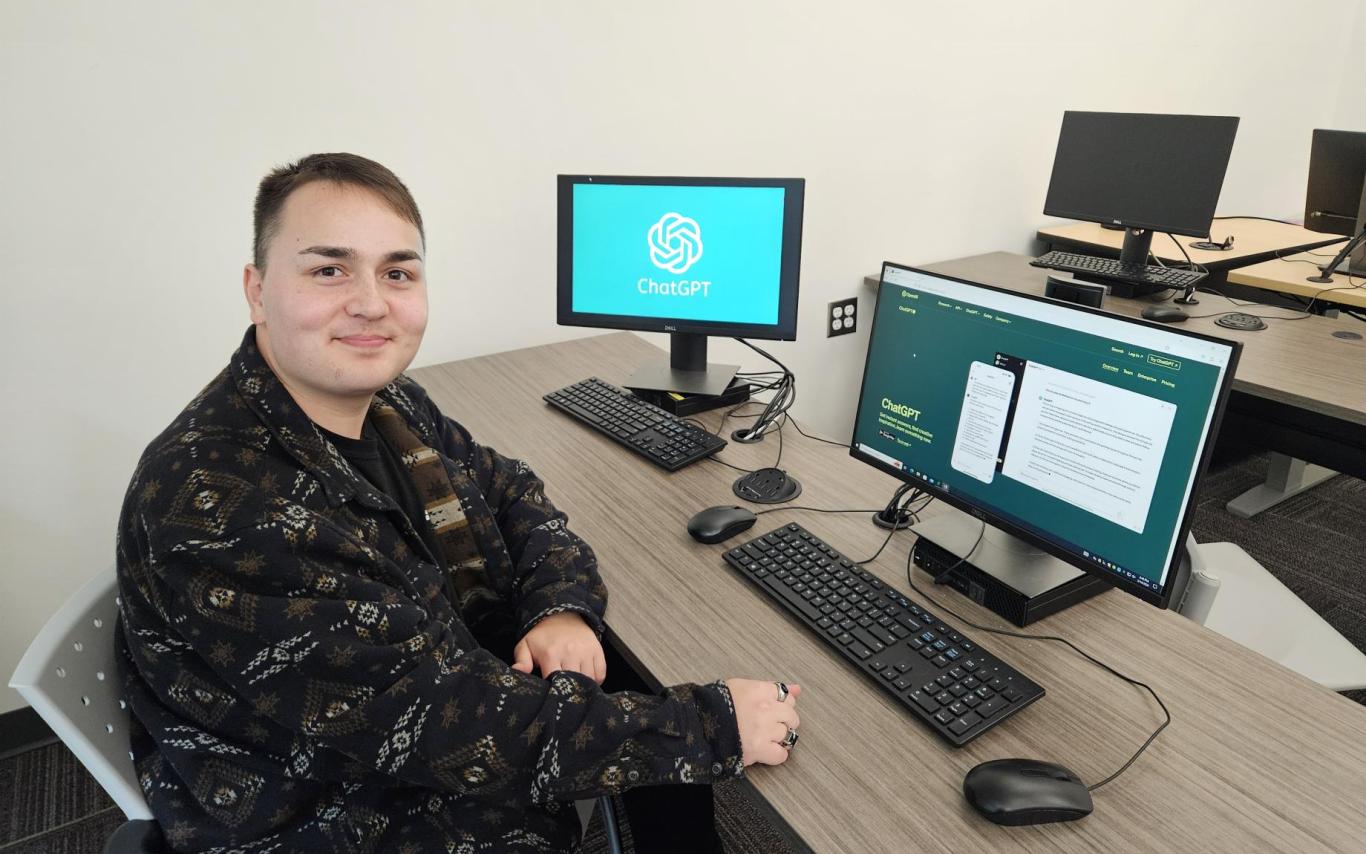Andrew Szilagyi shares his story
The dynamic nature of artificial intelligence (AI) technology has captured Andrew Szilagyi’s interest.
“The recent boom in AI development with tools like ChatGPT became a large topic of discussion worldwide and particularly in my life as a student,” he says.
The fourth-year VIU Psychology Honours student is delving deeper into the subject, with a new research project looking at how different levels of exposure to AI in the workplace can influence how workers perceive their identities when working alongside AI systems.
Andrew says that after reading current literature around the topic, he believes AI can be advantageous to the workplace in a variety of ways, such as freeing human workers from repetitive tasks and allowing them to embrace parts of the job that require human interaction and intervention.
“Where it becomes problematic is if it is used in a capacity that affects employee privacy and autonomy in the workplace,” he explains.
Andrew is in the middle of the data collection phase of his research. Using a mixed method approach of a survey and interview, Andrew says he’s already seen a wide variety of results and responses.
“Some participants lean towards a more futuristic mindset and are optimistic about AI implementation in many and all facets of life,” he says. “I have had other participants share their distrust and hesitancy towards AI systems, worrying about how it may impact employment and the greater workforce.”
Andrew will defend his thesis in April.
He is also presenting his research at the Canadian Psychological Association conference in Ottawa near the end of June. He also hopes to publish his research in academic journals.
He is still collecting data for his project and invites anyone 18 years of age or older to participate via survey or interview. Both take between 15 and 20 minutes to complete. Data collection will conclude later this month.
Looking ahead, Andrew’s long-range range plans include attending graduate school and pursuing a career in industrial organizational psychology. He says his current studies and research align well with these plans.
“Being able to participate in this exciting period of rapid AI growth in addition with my future ambitions culminated in refining the scope of my research," he says.




